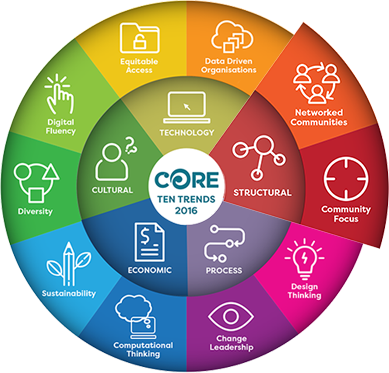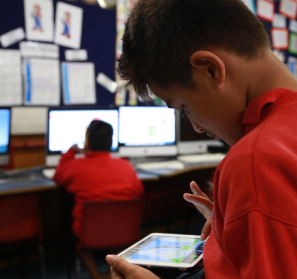Community focus

Early childhood centres and services, primary, intermediate and secondary schools are all aware of the vital importance of connecting parents, families and communities to their children’s learning. Negative schooling experiences of the parents may contribute to lack of engagement in face to face situations so other forms of communication must be explored.
How do we move parents from using traditional forms of engagement to embrace the effective use of digital technologies?
There are real and genuine opportunities for engagement by inviting parents to be a part of parallel learning journeys that not only support the learning of their children but enhance and foster a community understanding of intergenerational learning.
What we could also consider is shifting the focus from the engagement strategies that centres and schools are familiar with, to exploring and discovering what engagement looks like in our communities.
How do the parents, families and communities of our learners engage with each other in their respective learning contexts? In their homes? In their socialisation spaces? In their cultural contexts with each other?

We must be mindful that the communities themselves might hold possible ways of connecting effectively, and we can learn about these by observing how interactions play out in these
communities. Converting these methods of interactions into two way interactions that can be used to enrich the learning contexts of our children. What we will be able to see here is an improvement in parents’ perceptions towards the ways 21st century learning not only affects their children, but their own learning as well, when they provide supportive and conducive home learning environments.
Centres and schools can benefit from recording video and audio examples or interviewing parents, and sharing the record in blog posts, or synthesised in portfolios about:
- disclosing their areas of strengths that can be taught in centres and schools with their own and other children
- informing community focus programmes that use digital technologies to connect with home-school partnerships
- the ways parents and their children learn at home, highlighting and celebrating home-school partnerships
- the various ways community learning occurs in their diverse contexts
- engaging support networks and associated government agencies who can facilitate meaningful community engagement.